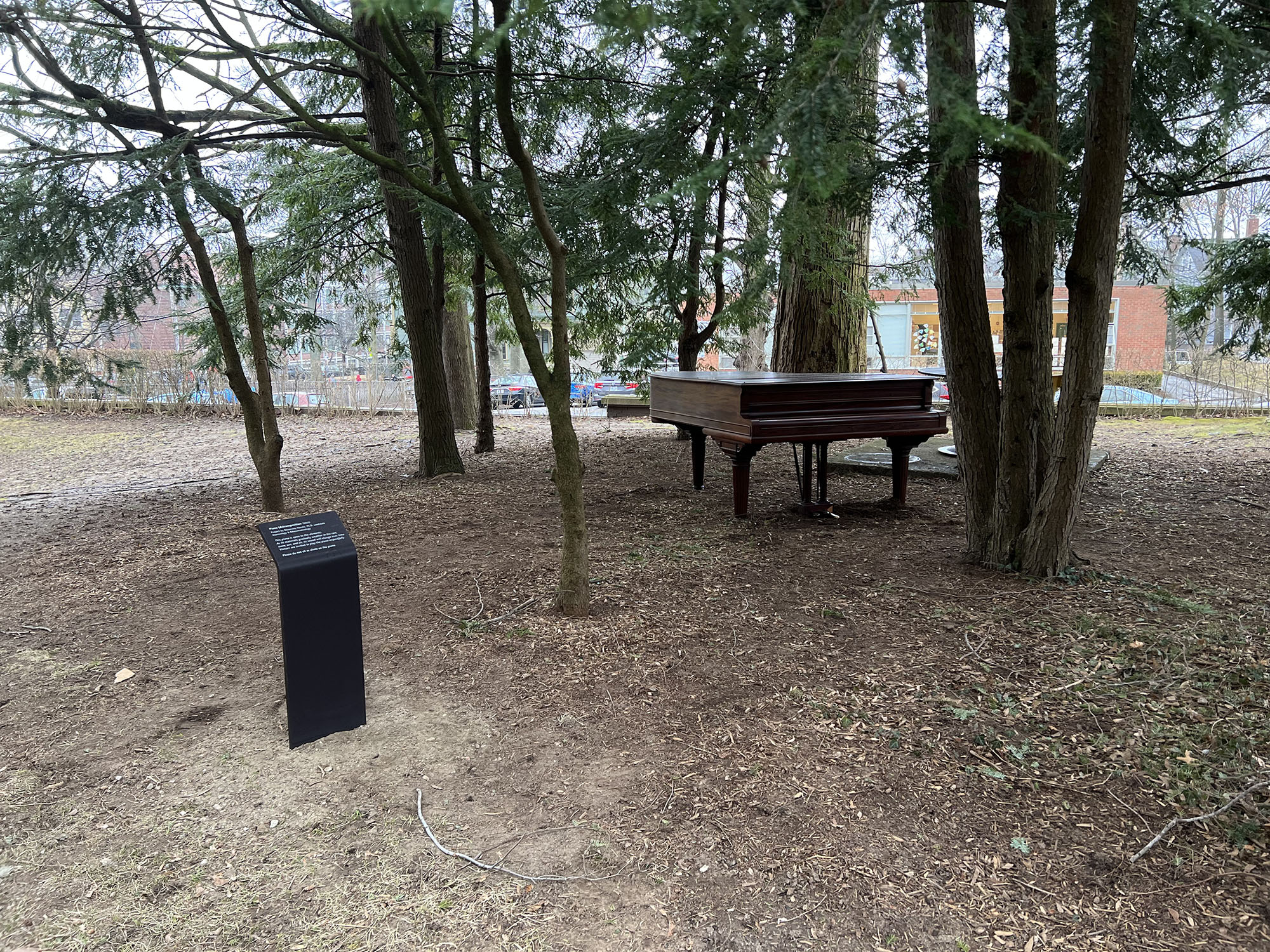
The Music Department is excited to announce the installation of a new outdoor project, Piano (de)composition, organized by second year Ph.D. candidate Devanney Haruta. On February 17, a piano was moved outdoors into a clearing underneath the pine trees between the Orwig Music Building and Hope Street. Exposed to the elements and open for visitor interaction, the piano will be in place for the next three years, which will allow its material and sonic changes to be observed over time.
Haruta’s research focuses on musical instruments, their materiality, and their relationships with humans. Before coming to Brown, she received her MA from Wesleyan University, where she wrote her thesis on piano destruction in works of art and music. This project is an extension of her research in an exploration of the connections between the natural environment and the piano’s sound and materials. Devanney writes, “Piano (de)composition challenges the notion that a piano must be in ‘good condition’ to have musical value and expands the piano’s possibilities for music-making. When I heard that the department was getting rid of an old piano, rather than have it sent off to the dump, I thought this would be a good opportunity to give this instrument a second life. Relocating the piano to a new home outdoors gives us a chance to see and hear how the instrument reacts to and performs with the environment through the changing weather and seasons. It also opens up opportunities for reflection on the relationship between sound and material, and our own interactions with and expectations for instruments.
“This project is inspired by the work of Ross Bolleter, an Australian composer and pianist, who finds, creates, and performs on what he calls ruined pianos. Whether found in abandoned buildings or received as donations, these pianos have fallen into varying states of disrepair from neglect or disuse. Bolleter relocates these instruments outdoors, where he performs and improvises on them. As the pianos break down in the elements, their material changes can produce some really fascinating sounds. This piano outside Orwig will be uniquely marked by the Providence environment. I’m excited to trace its musical journey over the coming months and years.”